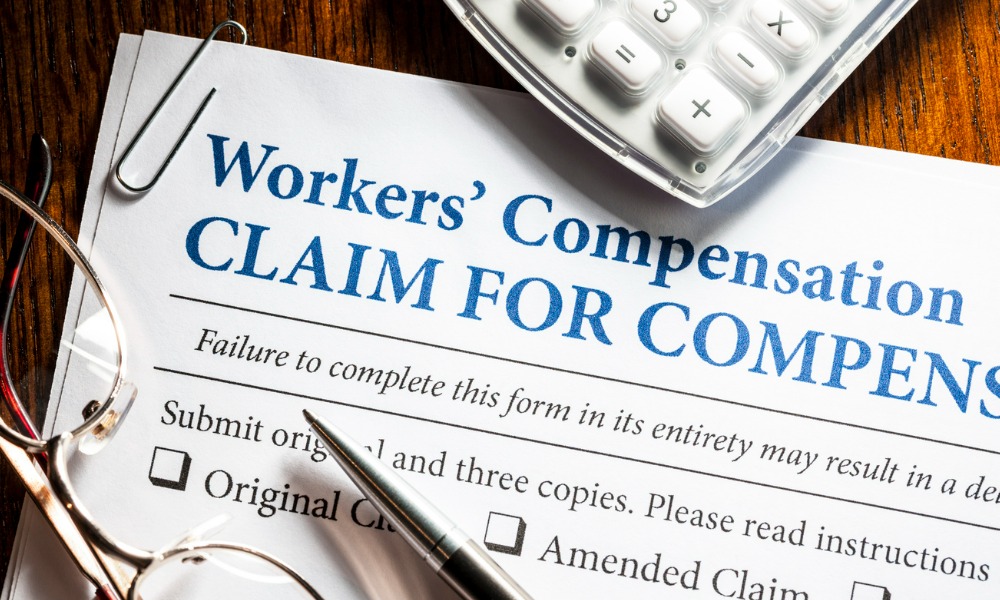
Husband was a sales rep who traveled from California to Kentucky to Indiana in March 2020

A woman applying for workers’ compensation alleged that her husband, while employed by the defendant as an executive sales representative, sustained injury to his internal organs and other body systems in the form of COVID-19, leading to his death.
In the case of Ramirez vs. Maurice Kariem & Company, Inc. and Sentinel Insurance Company, Ltd / The Hartford Financial Services Group, Inc., the employee’s duties included traveling to various locations across the United States to meet customers and to conduct jewelry shows.
Read more: California hotel owner seeks insurance proceeds for physical loss caused by COVID-19
On Mar. 2, 2020, the employee flew from Los Angeles to Kentucky to meet a customer then drove to Indiana to do a trunk show. He came back to Los Angeles on Mar. 8, 2020. He then experienced body aches, dry cough, and a fever. He died on Mar. 16, 2020.
On Mar. 26, 2020, a pathologist performed an autopsy and found that the employee died as a result of acute viral pneumonia likely secondary to COVID-19 infection. The postmortem molecular testing showed that the COVID-19 virus was present, which suggested that the employee’s death could be due to COVID-19.
The workers’ compensation administrative law judge found that the employee sustained injury arising out of and occurring in the course of employment (AOE/COE) in the form of COVID-19, resulting in injury to his internal organs and causing his death.
The defendant employer asked for reconsideration. It argued that the applicant failed to present substantial evidence that her spouse was infected with COVID-19 and that, if he was indeed infected, his employment with the defendant caused it.
The panel of the Workers’ Compensation Appeals Board of California granted reconsideration, rescinded the judge’s findings and order, and returned the matter to the judge for further proceedings.
The panel noted that the only medical record about the employee’s cause of death was the autopsy report. Since a pathologist performed the autopsy, he was not expected to address the issue of injury AOE/COE and did not do so in his report. Thus, there was no medical evidence regarding the issue of injury AOE/COE.
Section 3212.86 of the California Labor Code provides that a COVID-19-related illness or death is presumptively compensable if certain requirements are met. One requirement is that the employee performed labor or services between Mar. 19, 2020 and July 5, 2020. In this case, the panel ruled that the presumption was inapplicable because the employee died on Mar. 16, 2020.
Since the presumption did not apply, the applicant should show, at a minimum, that it was reasonably probable that her spouse’s employment with the defendant was a causative factor in developing COVID-19 and that the COVID-19 was a causative factor relating to his death, the panel held.
Upon the return of the matter to the judge, the panel recommended that the parties ask an agreed medical examiner or a regular physician to review the evidence and to submit a medical-legal report addressing the following issues: the risk factors inherent in traveling in March 2020, the likelihood that the employee was exposed to and developed COVID-19 as a result of traveling to Kentucky and Indiana, and whether COVID-19 was a contributing cause of death.